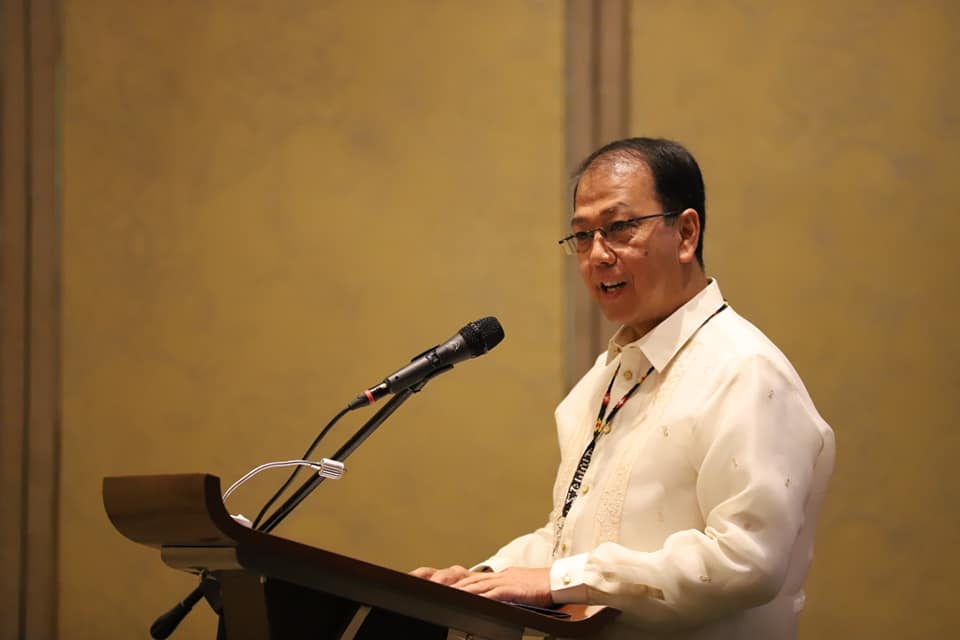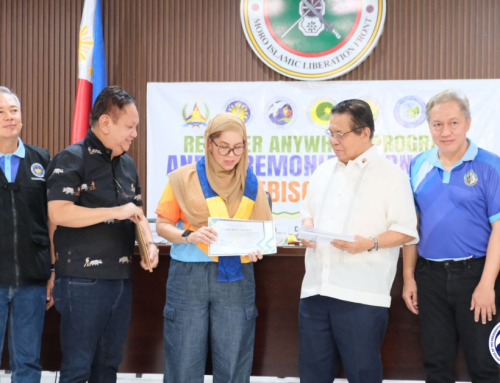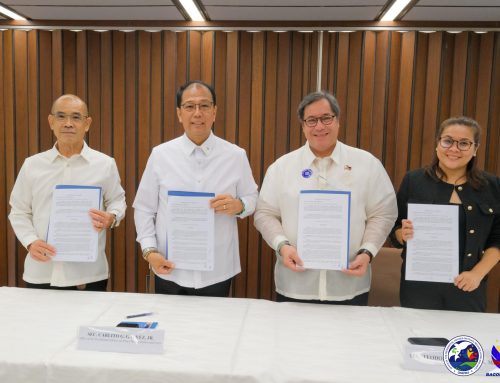PASIG CITY, March 8, 2019 — The government and the Moro Islamic Liberation Front (MILF) are working on the formulation of the implementing rules and regulations (IRR) of the proposed Executive Order on the Normalization Track under the 2014 Comprehensive Agreement on the Bangsamoro (CAB).
Presidential Peace Adviser Carlito G. Galvez Jr. said both sides are working double time to ensure the successful implementation of the programs under the Normalization Track of the peace agreement.
The CAB, which was signed between the government and the MILF, has two tracks, namely the Political Track that covers the passage of the Bangsamoro Organic Law and the Normalization process, which includes the decommissioning of MILF combatants and their weapons and the transformation of several camps into productive and resilient communities.
The EO will provide the necessary framework for the implementation of the Normalization Track to include the creation of an inter-cabinet mechanism responsible for coordinating and mobilizing government agencies, generating resource, and providing policy and legal advice.
Galvez said the IRR of the EO will be finalized “within next month.”
He also said the IRR will spell out the key components for the implementation process of the EO on the normalization track of the peace agreement.
“The IRR will contain the work plan, Gantt chart, and other activities covering the three-year period. It will also cover critical timeline, the scope of work, and all the programs for the security, socio-economic programs, and transitional justice,” he told reporters at the sideline of the signing of projects between the Government of Japan and its implementing partners from the United Nations at the Office of the Presidential Adviser on the Peace Process on Tuesday.
Galvez said the Normalization process has four major components: the security aspect, socio-economic development program, confidence-building measures, and transitional justice and reconciliation.
Right at the heart of the security component is the decommissioning of the MILF combatants and their weapons and the disbandment of private armed groups.
“The MILF forces will be decommissioned in four phases. The ceremonial decommissioning of 145 combatants was completed in 2015. Thirty percent, or more or less 12,000 combatants, will be scheduled late this year 2019. Another 35 percent will be decommissioned next year in 2020, while the remaining will be done in 2021-2022 before the signing of the exit agreements,” the chief peace adviser explained.
Several transitional bodies will also be created under the security components. These are the Joint Normalization Committee, Joint Peace and Security Committee, and Joint Peace and Security Teams.
There will be redeployment of government security forces in the Bangsamoro areas. Clearing of unexploded ordnance and landmines will also be undertaken.
In parallel, private armed groups will be disbanded through the reactivation of the National Task Force for the Disbandment of the Private Armed Groups.
Another component is the implementation of the socio-economic development program for the combatants and internally-displaced persons. Rehabilitation of areas that have been affected by the armed conflict will also be addressed.
Galvez said the socio-economic development program “will be supervised by OPAPP through the inter-cabinet cluster mechanisms on the transformation of combatants and camps into peace-loving individuals and productive, sustainable villages and communities, respectively.”
Aside from the security and socio-economic aspects, there will be a Transitional Justice and Reconciliation program to address the legitimate grievances of the Bangsamoro people. This is to promote social healing, reconciliation and cultural harmony in the Bangsamoro, and to resolve land disposition issues and boundaries.











